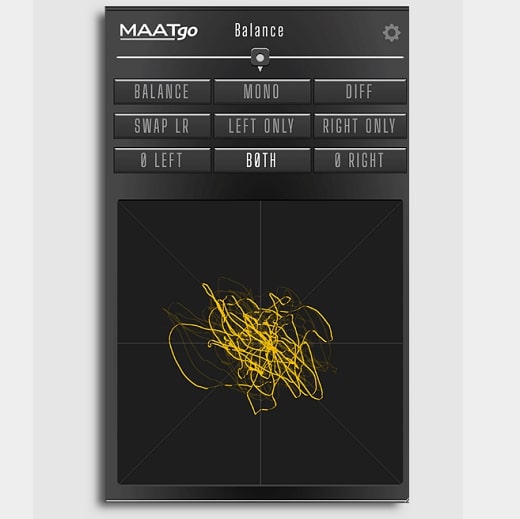
MAAT MAATgo v1.0.2 VST2 VST3 AAX
A universal monitor controller and visualization plug-in for computer audiophiles.
If music is your profession, your passion or both, MAATgo is for you. MAATgo is explicitly built for everyone who listens to HRA (High Resolution Audio) files and streams on their computer. In the Golden Age of consumer hi–fi, some preamplifiers had not only a “balance” knob, but stereo/mono blend controls and even an oscilloscope to instantaneously display amplitude, frequency and the phase relationship between left and right channels. Marantz, Panasonic, Pioneer and SAE sometimes included an oscilloscope in their receivers, while the Apt Corporation’s legendary and groundbreaking Holman Preamplifier had a range of channel re–routing switches and a continuous stereo/mono blend control. This was not “feature creep,” needless features just to fill out a list. The Apt’s re–patching and intermix controls served a very useful purpose.
Back in the Analog Era, most hi–fi enthusiasts had “separates.” These were individual stereo components, like a tuner or preamp, each serving one purpose. With the advent of “computer audio,” that rig can been reduced to a personal computer feeding a DAC or digital–to–analog converter. In turn, the DAC feeds a power amplifier or powered loudspeakers. While this minimalist setup eliminates a preamplifier, it has only a volume control and most player applications lack typical controls other than volume. Enter MAATgo, a preamp’s worth of advanced choices. When any of the controls are disabled, they are completely “out of circuit” and do not affect the sound quality. When any control is enabled, it’s DSP uses 64 bit, double precision floating point math to ensure maximum fidelity. Also, MAATgo will operate at up to 384 kHz, compatible with the highest fidelity lossless PCM files and streams generally available.
Features
MAATgo combines a variety of channel steering and blending controls with a balance adjustment and goniometer. Some of the stereo image and routing controls include a sum or L+R mode, a difference or L-R mode, a swap mode that interchanges the position of left and right, and polarity inversion for left, right or both.
We all need a bit of fun, and the L-R (Left Minus Right) mode can be used for “karaoke” since many popular songs have mostly monaural vocals. Since L-R mode removes any mono content, vocals are usually reduced significantly or eliminated entirely. This let’s you sing along, accompanied by the rhythm track. Another valuable feature, the polarity inversion modes let you check signal chain integrity, while the left–only and right–only controls offer a more nuanced view into your stereo soundfield.
Enjoy the DLL level emulator work of Nalpeiron/Zentitle!

